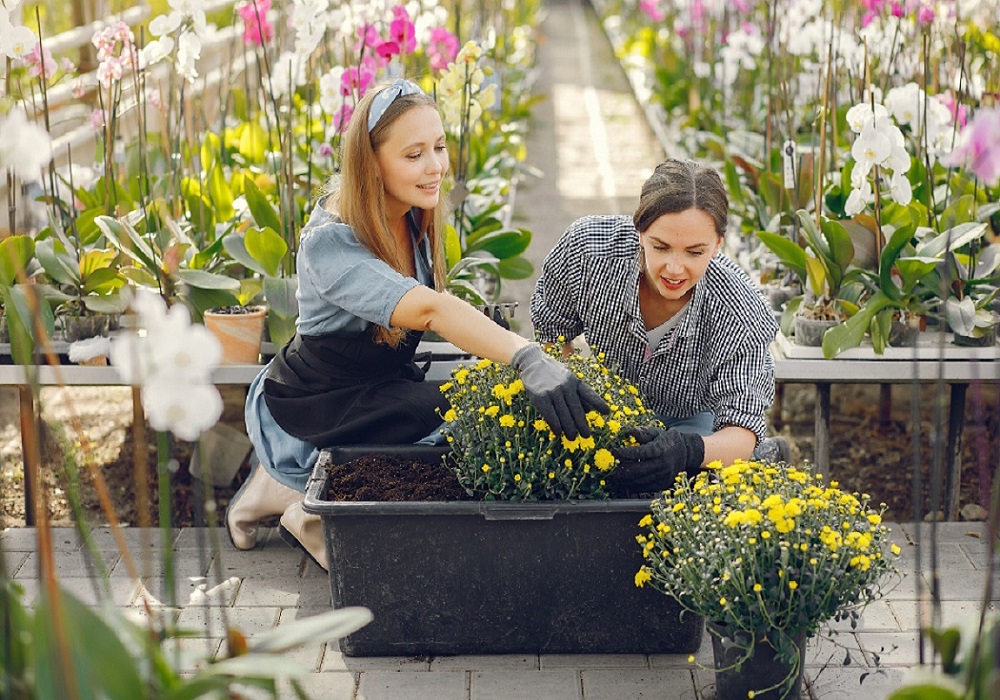In the bustling chaos of modern life, finding solace in the tranquility of your own garden can be a rejuvenating experience. Whether you’re an avid gardener or just starting out, cultivating your own green oasis at home is a fulfilling endeavor. To help you embark on this journey, we’ve curated a comprehensive guide packed with expert tips for gardening at home. From soil preparation to plant care, let’s delve into the essentials of nurturing your personal Eden.
Start with the Right Soil: Tips for Gardening at Home
Just like a sturdy foundation is essential for a building, nutrient-rich soil forms the basis of a thriving garden. Invest in high-quality soil or enrich your existing soil with compost to provide essential nutrients for your plants’ growth.
Choose the Right Plants
Before you begin planting, take the time to investigate which plants thrive in your specific climate, soil type, and sunlight availability. Whenever feasible, prioritize native plants, as they have evolved to thrive in local conditions and typically demand less upkeep.
Plan Your Layout
A well-thought-out garden layout can maximize space and create visual appeal. Consider factors such as plant height, spread, and growth habits when planning your garden beds. Group plants with similar water and sunlight requirements together for efficient watering and care.
Practice Regular Watering
Consistent watering is crucial for the health of indoor plants, especially during the hot summer months. Invest in a soaker hose or drip irrigation system to ensure deep watering without wasting water through evaporation. Remember to water indoor plants early in the morning or late in the evening to minimize water loss due to evaporation.
Mulch for Moisture Retention
Mulching not only suppresses weeds but also helps retain soil moisture, reducing the need for frequent watering. Organic mulches such as shredded leaves, straw, or wood chips also break down over time, enriching the soil with valuable nutrients.
Prune and Deadhead Regularly
Pruning encourages healthy growth and prevents overcrowding in your garden. Remove dead or diseased branches, as well as spent flowers (a process known as deadheading), to promote continuous blooming and maintain plant vigor.
Combat Pests Naturally
Instead of reaching for chemical pesticides, opt for natural pest control methods to keep your garden ecosystem balanced. Introduce beneficial insects like ladybugs and praying mantises, plant companion herbs such as basil and mint to deter pests, and use organic repellents like neem oil or garlic spray.
Fertilize Wisely
While fertilizers can boost plant growth, over-application can lead to nutrient imbalances and harm beneficial soil organisms. Use organic fertilizers sparingly and follow recommended application rates based on soil test results to ensure optimal plant nutrition.
Rotate Your Crops
To prevent soil depletion and reduce the risk of pests and diseases, practice crop rotation by planting different types of crops in the same area each year. Rotate crops from different plant families to minimize nutrient depletion and disrupt pest life cycles.
Embrace Sustainable Practices
Sustainable gardening practices not only benefit the environment but also promote long-term garden health. Collect rainwater for irrigation, compost kitchen scraps to enrich soil fertility, and choose eco-friendly gardening products to minimize your carbon footprint.
Stay Vigilant Against Weeds
Regular weeding is essential to prevent weeds from competing with your plants for nutrients and sunlight. Mulching can help suppress weed growth, but be sure to pull out any weeds that manage to sprout before they become established.
Invest in Quality Tools
A gardener is only as good as their tools, so invest in high-quality gardening tools that will last for years to come. Essential tools include a sturdy trowel, pruners, gloves, and a watering can or hose nozzle for precise watering.
Don’t Forget About Pollinators
Pollinators such as bees, butterflies, and hummingbirds play a crucial role in fruit and vegetable production. Encourage pollinator activity in your garden by planting nectar-rich flowers and avoiding the use of chemical pesticides that can harm beneficial insects.
Keep Learning
Gardening is a lifelong journey of discovery, so don’t be afraid to experiment and learn from your successes and failures. Stay curious, attend gardening workshops or classes, and connect with fellow gardeners to exchange gardening tips and advice.
By following these expert tips for gardening at home, you’ll be well on your way to creating a vibrant and bountiful garden that brings joy and beauty to your outdoor space. Remember, gardening is not just about nurturing plants—it’s about nurturing your connection to nature and fostering a sense of wellbeing in your everyday life. So roll up your sleeves, dig in the dirt, and watch your garden flourish before your eyes. Happy gardening!
FAQs
- How much sunlight does my garden need?
- The amount of sunlight your garden needs depends on the types of plants you’re growing. Generally, most vegetables and flowering plants thrive in full sun, which means at least 6-8 hours of direct sunlight per day. However, some plants, like leafy greens and certain herbs, can tolerate partial shade.
- What is the best time of day to water my garden?
- Watering early in the morning is ideal because it allows plants to absorb moisture before the heat of the day sets in. Avoid watering during the hottest part of the day to minimize water loss through evaporation. Watering in the evening can promote fungal diseases by leaving foliage wet overnight.
- How do I prevent pests from damaging my plants?
- There are several strategies for pest control in the garden. Encourage natural predators like ladybugs and lacewings by planting nectar-rich flowers. Use physical barriers such as row covers to protect vulnerable plants from pests. Additionally, practice good garden hygiene by removing plant debris and weeds where pests may hide.
